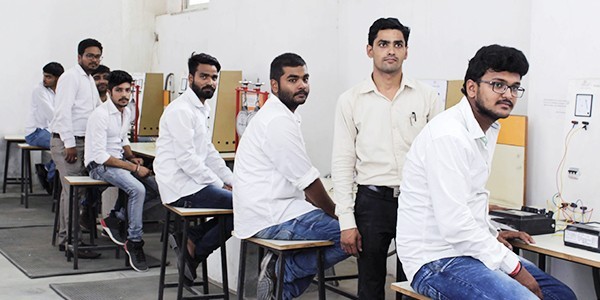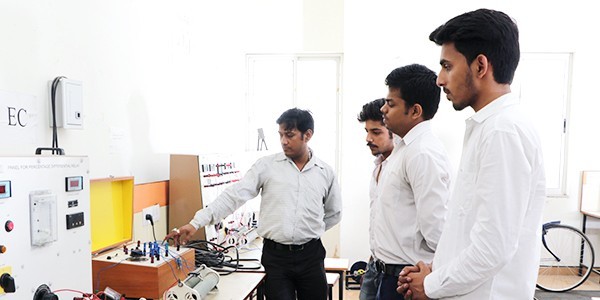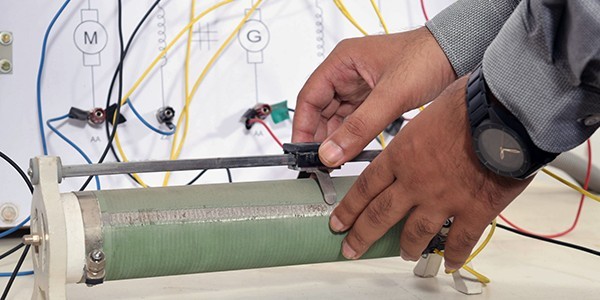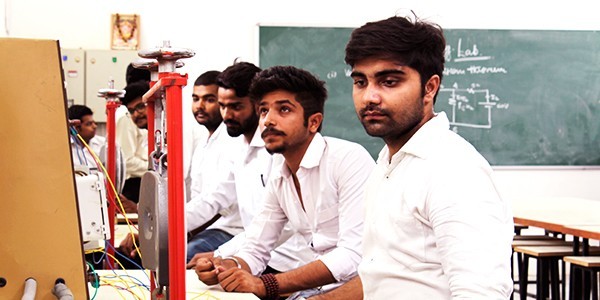M. Tech – Power Systems & Control
Educational Objectives
Power is the backbone of every industry. Even though all the disciplines of engineering are interdependent, without electricity or power, no industry will be able to survive. A postgraduate study of Power Systems and Control deals with the generation, dispatch and transmission, followed by distribution and finally utilization of power, and the various mechanisms, and economics, related to it.
Such is the need of Power System Engineering that best M.Tech college in Lucknow like BBDU offers an independent, certified, and tastefully modified, course in this discipline. The modification stands as the inclusion of in-depth study of control systems and AI, the knowledge of which can be used for remodelling, rebuilding, customising, redesigning the current power system mechanisms.
But, one must understand the importance of the work of such an engineer and how his/her work can bring about a lot of difference. Thus, BBDU-The Power Systems & Control Engineering College in Lucknow, makes sure that all its students are truly capable by completing some objectives in the course. These objectives are:
- Thorough classroom learning under guidance from highly experienced faculty members
- Proper course-pertinent practical training in state-of-the-art labs with specially trained teachers
- Real-time learning and problem solving with compulsory internships, trainings, research and projects
- In-depth learning of concepts and their uses in development throughout the globe
Opportunities For Power Systems & Control Engineers
Let’s take a look at the following points:
- The requirement and need for power, given the current era of technology, is never going to end
- With the shifting focus from conventional sources for power generation, more capable minds are required for the sustenance and maintenance
- The research for lowering powering consumption is a completely independent section of study which will not lose its importance anytime soon
- A developing nation like ours is not able to extract maximum efficiency in such areas even after abundance of resources
- Research for new sources of power has also been a budding division of sciences which can prove to be critically important in the future
Thus, a mere few points prove that there is no dearth of jobs and research opportunities.
Usually offered jobs are:
- Service engineer
- Research Associate
- Power Systems Engineer
- Electrical Engineer
- Technical Project Manager
- Power Integrity Engineering
Program Outcomes
- Engineering Knowledge: Apply the knowledge of mathematics, science, engineering fundamentals and an engineering specialization to the solution of complex engineering problems.
- Problem Analysis: Identify, formulate, review literature and analyze complex engineering problems reaching substantiated conclusions using first principles of mathematics, natural science and engineering sciences.
- Design / Development of Solutions: Design solutions for complex engineering problems and design system components or processes that meet the specified needs with appropriate consideration for the public health and safety and the cultural, societal and environmental considerations .
- Conduct Investigations of Complex problems: Use research based knowledge and research methods including design of experiments, analysis and interpretation of data, and synthesis of the information to provide valid conclusions.
- Modern Tool Usage: Create, Select, and apply appropriate techniques, resources and modern engineering and IT tools including prediction and modeling to complex engineering activities with an understanding of the limitations .
- The Engineer and Society: Apply reasoning informed by the contextual knowledge to assess societal, health, safety, legal and cultural issues and the consequent responsibilities relevant to the professional engineering practice.
- Environment and Sustainability: Understand the impact of the professional engineering solutions in societal and environmental context and demonstrate the knowledge of , and need for sustainable development.
- Ethics: Apply ethical principles and commit to professional ethics and responsibilities and norms of the engineering practice.
- Individual and Team Work: Function effectively as an individual and as a member or leader in diverse teams and in multidisciplinary settings.
- Communication: Communicate effectively with the engineering community and with society at large. Be able to comprehend and write effective reports documentation. Make effective presentations, and give and receive clear instructions.
- Project management and finance: Demonstrate knowledge and understanding of engineering and management principles and apply these to one’s own work, as a member and leader in a team. Manage projects in multidisciplinary environments.
- Life-long learning: Recognize the need for, and have the preparation and ability to engage in independent and life-long learning in the broadest context of technological change.
Program Specific Outcomes
- Ability to apply fundamentals of Technology for Engineering Solutions in accordance with industrial demand using the domains of applied science, algorithms, electrical power, Advanced power electronic components, transient behavior, economic operation, Reactive power dispatch, optimal power flow, Security, Unit commitment, State estimation and Modeling & Simulation analytics, Artificial Intelligence , Advanced Control controller.
- Ability to employ modern computer languages with focus on open platforms to develop innovative solutions in the field of Electrical Engineering ( electrical power, network, power electronic components, transient behavior, economic operation, Security and Contingency) with professional behavior and ethics.
.
Syllabus
Apply Now
Error: Contact form not found.
Engineering Courses
Labs
- Basic Electrical Lab
- Control System Lab
- Electric Drives Lab
- EMEC-I Lab
- EMEC-II Lab
- EMMI Lab
- Network Lab
- Modelling Simulation Lab
- Power Electronics Lab
- Power System Lab
- Artificial Intelligence Lab
- Power System Protection Lab
Old Syllabus
[pdf-light-viewer id=”8692″]








